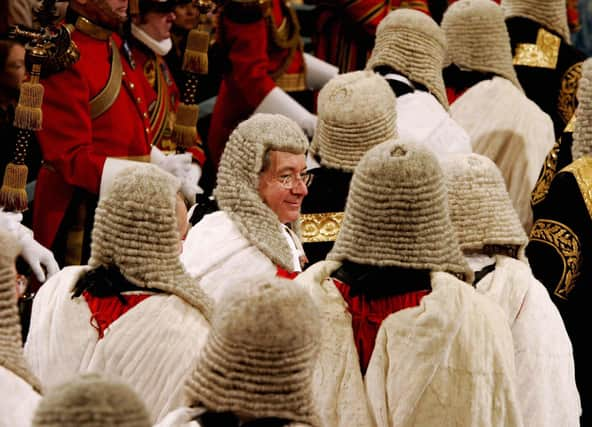House of Lords: Hereditary peers are being 'elected' to parliament in a mockery of democracy – Willie Sullivan


For all its imperfections, democracy did its job. After months (or was it years?) of campaigning, each MSP secured their place, powered by over 40,000 voters.
England has seen by-elections for parliament since then. Each saw the collective eyes of Westminster turn to see who would win a seat in the Commons and become the UK’s newest parliamentarian. Almost as soon as they took their places in the Commons, they were overshadowed by a much shadier political process.
Advertisement
Hide AdAdvertisement
Hide AdOver the past two months, there have been a string of hereditary peer by-elections in the House of Lords – that have seen six new peers join the second chamber, with four Conservatives, one Labour and one cross-bench peer given a lifetime appointment to vote on our laws.
They take their place among the 92 unelected hereditaries that still – inexplicably – sit in our second chamber. In 2021, their place is effectively confirmed as a birth right, passed down through generations.
These elections hand aristocrats a significant role in our parliament and over the issues that affect all of our lives. And they do so without giving the public any say whatsoever.
Each are voted in by a collection of their own: other aristocrats who already have their own lifetime appointments as legislators. The public don’t get a say on who goes in and has no power to kick them out.
The fact these hereditary by-elections have taken place on the back of a number of by-elections for MPs in the Commons has put the democratic deficit of the Lords into sharp focus.
When Westminster’s spotlight was on the votes in Airdrie and Shotts, Chesham and Amersham, and Batley and Spen, six new peers secured a place in parliament thanks to just a handful of votes from their peers.
The average electorate in three of so-called hereditary by-elections was just 406 eligible voters, with an average turnout of a paltry 197 votes.
New Electoral Reform Society analysis shows this is equal to just 0.6 per cent of the average turnout for the last three parliamentary by-elections, which stood at 32,522. Of course, it’s even less when you compare it to electing an MSP here in Holyrood.
Advertisement
Hide AdAdvertisement
Hide AdIn total, just 590 votes were cast to ‘elect’ the six hereditary lawmakers versus 97,567 votes in the three recent parliamentary by-elections.
In one case a candidate was elected unopposed.
Viscount Stansgate, the son of former Labour MP Tony Benn – who famously campaigned for the right to renounce the peerage – was ‘elected’ without a vote, as there were no other candidates. Had it been contested, there would have been only three eligible voters. A new low even for the Lords.
This private members’ club is in drastic need of an overhaul. Nothing demonstrates that as much as these bizarre hereditary by-elections.
It’s time to bring parliament into the 21st century and move to a proportionally-elected second chamber where the people, not the peers decide who make our laws instead.
Willie Sullivan is senior director of the Electoral Reform Society Scotland
A message from the Editor:
Thank you for reading this article. We're more reliant on your support than ever as the shift in consumer habits brought about by coronavirus impacts our advertisers.
If you haven't already, please consider supporting our trusted, fact-checked journalism by taking out a digital subscription.
Comments
Want to join the conversation? Please or to comment on this article.
